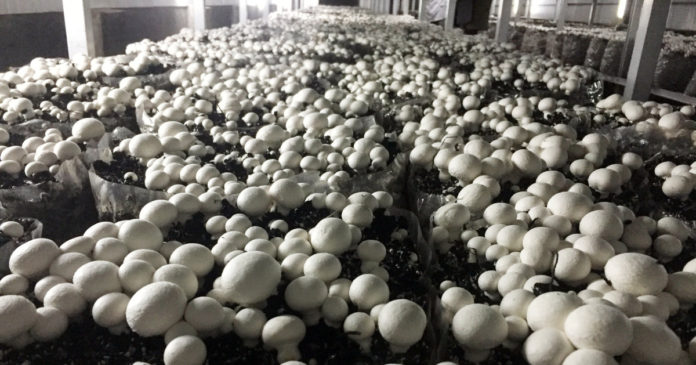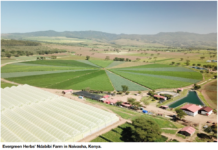The National Mushroom Growers, Processors, and Marketers Association of Nigeria (NAM- GP-MAN) are calling for inclusion of the commodity into the Central Bank of Nigeria’s Anchor Borrower Programme (ABP).
The group’s National President), Chief Michael Awunor lamented a situation where the commodity association was created by the federal government but neglected soon after launch. He called on government to enlist the association in ABP and other agricultural funding avenues in order to tap into the $45.3 billion global mushrooms market, which is further projected to reach $72.5 billion by 2027.
He said investment in mushroom would boost the present administration’s agenda to diversify the economy and create jobs for Nigerians. Speaking at the maiden National Mushroom Week in Abuja, Awunor, he called for proper funding of the commodity association as well as a special fund for agricultural commodity associations to be managed by the Federal Ministry of Industry, Trade and Investment and the associations.
Global demand
He added that the mushroom week seeks to sensitise and educate Nigerians on the importance of cultivation and consumption of the commodity and appreciate God for the gift of mushroom to mankind due to its nutritional and medicinal values as well as the opportunities it presents for job/wealth creation.
Awunor said the global demand for mushroom has continued to increase significantly according to the Food and Agriculture Organisation (FAO) with world production estimated at 8.99 million tons in 2018 – China accounting for 46 per cent of global output.
Africa accounted for 28.77 thousand tons mainly produced by South Africa, Madagascar, Morocco, Algeria, Zimbabwe and Tunisia while Nigeria’s annual production was estimated at only about 1 5 tons or 1,495 kilograms in 2019.
According to him the global demand and market for mushroom stemmed from its potency in medical and nutritional applications adding that the increasing global awareness for healthy foods had further made the commodity a highly preferred substitute for meat in proteins, vitamins and minerals.
He said,”The statistics above represents a lucrative and attractive option for Nigeria to key into mushroom production for economic diversification, job creation and the medicinal/nutritional value will greatly enhance the wellbeing of her populace.”
But he said available date indicated that there was no production in some states of the federation. He put the monthly estimated mushroom production in the country at about 12,460kg and 149,520kg annually, representing only about 10 per cent of total annual local demand. He added that Nigeria needed to produce about 1.46 million kg to meet local demand.
“This implies that mushroom farmers may need to produce about 1,495, 200kg to meet local demand alone. However, with proper incentive and additional encouragement from government, farmers can produce much more for medicinal, nutritional, industrial raw materials and exports,” he said.









